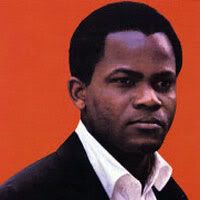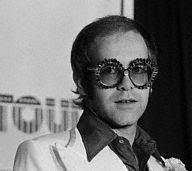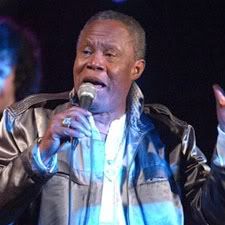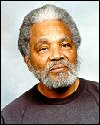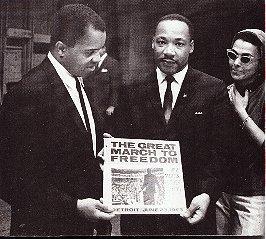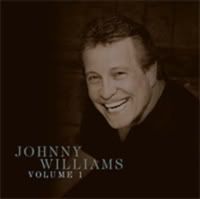The anniversary of the impact of Hurricane Katrina upon southern Mississippi and Louisiana saw the arrival of President George W Bush at a commemoration ceremony. When the hurricane struck, the President did not visit the disaster area until two weeks later. In that period of time, thousands of citizens in New Orleans, predominantly black, were left stranded inside the city, unable to access routes of evacuation, some led by the authorities to huddle in the inadequate facilities of the Superdome, others faced by the presence of National Guard and Federal troops given orders to shoot to kill any person seen looting, whether this was to secure food and water for their families or not.
As usual, the undeniable existence of failures at every level of government, at city, state, and federal level, ensured that nobody else would be required to be held accountable, once the head of FEMA had been fired for failing to enact plans that he had been ordered not to enact.
More disturbingly, the survivors of the disaster have come under growing criticism in the national press, from those who wish to paint the tragedy as almost a divine punishment for the the criminal, the poor, the welfare-dependent, the poorly educated, (the black?) inhabitants of the city of New Orleans. Particulary in the city of Houston, eager to portray itself as a 'good samaritan' in the early days of the crisis, it has become politically expedient to highlight the social problems which have travelled to Houston with the evacuees. Increases in general crime, and gun-related crime in particular; the re-establishment of gang groupings in Houston suburbs; an increase in welfare bills in the city; statistics that show the lower academic achievement of child evacuees; a squeeze on the availability of rented housing for native Houstonians.
Could these allegations be true? Almost certainly, every one. But, we should ask, what did you expect? New Orleans is not unique amongst American cities in having exacerbated the problems faced by its population, and in having limited the opportunities of some due to the colour of their skin. We all know that. Let the situation alone for long enough, fail to do enough to address the social disparities for a few generations, and any group of people will turn towards alternative paths to make it through, however self-destructive those paths may become. It is incredible to me, how some conservative thinkers, such as
Ed Lasky at
The American Thinker and
Nicole Gelinas at
The City Journal, truly believe that, as long as you stop actually treading on peoples' necks, they will spontaneously transform into new contented members of the middle-class, and behave themselves. And all with lower taxes! Of course, you will need to let the police be a little tougher, to keep folks concentrating...
It takes people, facilities, education, employment, security, and stability to rebuild peoples' lives. It is not easy, it is not cheap, it is slow. It cannot be accomplished solely by developing a robust policing strategy alone. That helps to reduce the insecurity of crime and gangs, then you have to build alternatives to eliminate those issues.
It has been one year. For some, though by no means the majority, that is just too long at playing the 'friendly neighbour'. I can understand their point of view, when you take into account the appalling lack of progress achieved by those responsible for reconstructing the city of New Orleans and other affected areas. Why is reconstruction in areas such as the Ninth Ward still not underway? Until there is adequate housing and comprehensive facilities in such districts, the evacuees cannot return home. Some economic conservatives point out that it is vital to first regenerate the economy of the city in order to provide the stability the residents need. A misunderstanding of the concept of a city economy. The income from a few thousand seasonal tourists will not be enough to kick-start the services of hundreds of thousands of residents. You will have to accept that people need to return soon; that housing will have to be built and paid for by the authorities; that those people will be not have jobs or regular incomes; that they will again have to be supported by the authorities; that businesses will have to be kick-started with funds from the authorities, independently of anything achieved by banks and corporations which need to consider risk and cannot simply throw their money around. Yes, the government of the United States will have to throw some money around in New Orleans, employ New Orleans people directly. Pay construction companies to build, pay residents to build them, buy the houses, and this time think a little about quality of housing stock and affordability. Pay people to set up local businesses, shops and stores, as well as pay for the city's vital employees.
But of course, none of this will happen. Clearing up will be sorted out by federal and state troops and engineers eventually. The city will take on the costs of essential social services, and will have to fight for decades with the state and federal government for extra funds and loans to support a quickly-reestablished debt. "Oh, you should have cut back and economised on services!", the conservatives will admonish. Reconstruction will happen via the private sector, as and when a business from outside of New Orleans deems it is profitable to do so. The tourist districts will regeneration fastest, others will remain under-resourced, as banks balk at underwriting stores in poorer districts where the people are angry and are relying on welfare to pay for essentials. "You can't beat the market. Did you want to go back to the New Deal?", conservatives will warn. Construction firms, perhaps those Halliburton chaps, will build housing to their own specifications. They will claim land for little or no cost wherever land goes unclaimed, and compulsory purchase orders will be made against stubborn landowners who cannot raise sufficient funds to rebuild. Some will be sold at prices to recoup costs, plus a healthy profit, as is the natural way. Other housing will be crammed in and leased or managed privately for the city. Obviously, somebody has spent the last year creating a balanced and positive plan for these new improved residential districts. Haven't they? "It's what they're used too", people will say. Welfare is a cost that needs to be controlled, let alone the insidious affect it can have on a person's moral and self-motivation. Other social spending, such as education and training, is quite costly too, and is therefore quite rightly a local matter. It will be next year, or maybe the next, when the city has adequate funding to pay for those textbooks the community teachers asked for, and there is a great plan to replace the portacabin classroom within ten years. In the meantime, there is alway the charity and ingenuity of churches, and all those great folks down there, in the new New Orleans, where we don't live.
This post reads like an angry rant, yet the purpose was more to highlight just how much and how long it will take to truly, not just restore, but transform the city into a better New Orleans for its people. Can the American people be galvanised to take on a task that will take a decade of their attention and resources? They did during the Depression, but the methods are anathema to the American heartland, and after all, this is just one city. Some conservatives come up with intelligent and urgently-needed schemes (see
this July article from the New York Post), particularly in the area of law-enforcement, but simply cannot help but link them to a few digs at the people charged with implementing them: "New Orleans was a mess before the hurricane; and you'll only fuck it up again," seems to be the attitude. I'd love to believe that these people care about the people who will live in the city, but it sounds more like the preparatory argument for pulling out and leaving them to sink or swim. For after the 'tough on law and order' apporach gets tough, ie takes longer than a month to solve all society's ills, conservatives rapidly lose interest in the social and educational programmes that should have been implemented alongside, and that make it easier for law-enforcement to establish security. The reality has impacted on the lives of the people of Houston, and they see the enormity of the task ahead, but the crisis is far away for the rest of us.
A waitress demanded of the President,
"Will you turn your back on me again?" He replied,
"No, ma'am, not again." He will be gone from office long before he has to stand by his vow. I guess he must be speaking for all of us.
Jack Montgomery - Don't Turn You're Back On Me (Barracuda)Available on the CD "The Essential Detroit Soul Collection" (Goldmine/Soul Supply)
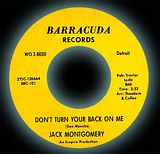
POSTSCRIPT: I like to peruse the
City Journal archives for funny stuff, especially Theodore Dalrymple, who has become sort of "America's Correspondent From Sinister Londonistan". I just found another article by
Nicole Gelinas, where she at first seems to suggest that the Federal Government take on the burden of buying out and rebuilding the homes of New Orleans, thus keeping the money away from those corrupt officals of the state and city, and letting the sturdy folk of New Orleans help themselves. How magnanimous and far-sighted, I thought. But then I read on. She actually believes that, in the best traditions of 'self-help', the people of New Orleans will have their
moral fibre as well as their homes restored if the government merely pays for 60% of the costs of rebuilding your home, while the homeowner themselves finds the other 40%, or sell out their land to redevelopment companies
and pay back the mortgage lender. I provide a brief quote to illustrate the difficult dilemmas that today's conservative must contend with:
"...Senator Baker’s original bill seemed to suggest that lenders would be paid off in full; the 60-percent provision is the Congressman’s reasonable response to criticism that such a bailout of banks that loaned billions to people who invested in property below sea level would create an intolerable moral hazard. Skeptics might ask: Even at the 60 percent rate, wouldn’t the LRC still create a massive moral hazard by retroactively indemnifying homeowners and lenders for the risk of investing in a flood-prone area without adequate insurance?..."Well, quite. Of course, choosing to live in New Orleans is immorality itself. We
must save the people by taking away 40% of their life savings too...
 Out of all of the images of yesterday's events in Memphis that were broadcast in Britain, the most surprising for me, but also ironically the most heart-warming, was the sight of Republican nominee John McCain standing at the balcony where Dr King was killed and being shown around the museum. The fulsome praise which he heaped upon Dr King and the admiration for his legacy which he expressed was exemplary, and I imagine they took quite a bit of political courage from a man who, throughout most of his life, had not in his own words "even considered" the significance of the Civil Rights Movement, and had frequently in his career campaigned and voted against the institution of a National Martin Luther King Day, and also the establishment of that holiday in his state of Arizona.
Out of all of the images of yesterday's events in Memphis that were broadcast in Britain, the most surprising for me, but also ironically the most heart-warming, was the sight of Republican nominee John McCain standing at the balcony where Dr King was killed and being shown around the museum. The fulsome praise which he heaped upon Dr King and the admiration for his legacy which he expressed was exemplary, and I imagine they took quite a bit of political courage from a man who, throughout most of his life, had not in his own words "even considered" the significance of the Civil Rights Movement, and had frequently in his career campaigned and voted against the institution of a National Martin Luther King Day, and also the establishment of that holiday in his state of Arizona. It seems that in the meantime, John McCain has grappled with how his experiences of imprisonment and the experience of racism in America both highlight injustice and indignity. I hope that his conversion is a heartfelt and a genuine one. To be sure that Senator McCain remembers, I have chosen a song from an old nemesis, Stevie Wonder, one of the originators of the idea of Martin Luther King Day, which will serve as a reminder.
It seems that in the meantime, John McCain has grappled with how his experiences of imprisonment and the experience of racism in America both highlight injustice and indignity. I hope that his conversion is a heartfelt and a genuine one. To be sure that Senator McCain remembers, I have chosen a song from an old nemesis, Stevie Wonder, one of the originators of the idea of Martin Luther King Day, which will serve as a reminder.



